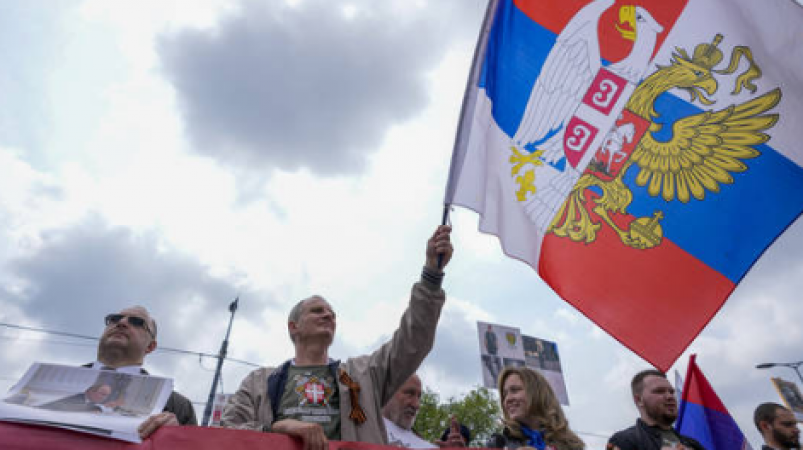
EU: The European Parliament warned Belgrade on Wednesday that failing to abide by the EU's sanctions against Russia and cease its "anti-democratic" practises would result in a loss of funding from Brussels and a suspension of accession talks.
In his report on Serbia, MEP Vladimir Bilcik made the case that "accession negotiations with Belgrade should advance only if the country aligns with EU sanctions against Russia and makes significant progress on EU-related reforms," particularly the "rule of law and fundamental rights, the functioning of democratic institutions, and a commitment to shared European rights and values."
According to Brussels, Belgrade must "align with the EU's common foreign and security policy" if sanctions against Russia are to be lifted. Aleksandar Vucic, the president of Serbia, is now forced to decide between two positions he has publicly supported: not sanctioning Moscow because of political, historical, and legal considerations, or joining the EU as Serbia's strategic aspiration.
Also Read: Women make up 42% of the UAE's aviation workforce
Support for membership in Serbia has been significantly weakened by the EU's insistence on sanctions and demands to recognise the breakaway province of Kosovo as an independent state. However, according to the EP report, this was caused by "long-standing anti-EU/pro-Russian political rhetoric spread via government-controlled media" and by government officials, as well as "gross failure from government representatives to face up to and come to terms with Serbia's past."
A directive with "correct terminology" regarding the conflict was sent to all Serbian media outlets by the Ukrainian embassy last month. Due to "unbearable" pressure from the EU, one of Vucic's ministers openly supported sanctioning Moscow in March. He wasn't fired, just publicly censured for acting out of line.
Also Read: Israeli-Palestinian fighting escalates as Egyptian efforts to broker a cease-fire fail
The EU should "reconsider the extent of its financial assistance to Serbia" if Belgrade continues to support "anti-democratic politics," the European Parliament warned on Wednesday. This is because its spending must be "fully in line with the EU's own strategic goals and interests."
Bilcik did not clarify how a stance that is opposed by 80 percent of the populace can be deemed "anti-democratic." The report from the Slovakian MEP received 508 votes in favour, 76 votes against it, and 37 abstentions.
Also Read: An alleged death cult leader in Kenya is denied bail by a court
The proposal from France and Germany for "normalising relations" with Kosovo was presented to Vucic in February, at which point he made the revelations that were later formally confirmed. Vucic expressed regret for his predicament, telling the national TV network that Serbia had 80,000 workers in German-owned factories alone and could not afford to lose EU investments, but he also stated that he had no intention of signing any "formal or informal recognition of Kosovo" while he was president.